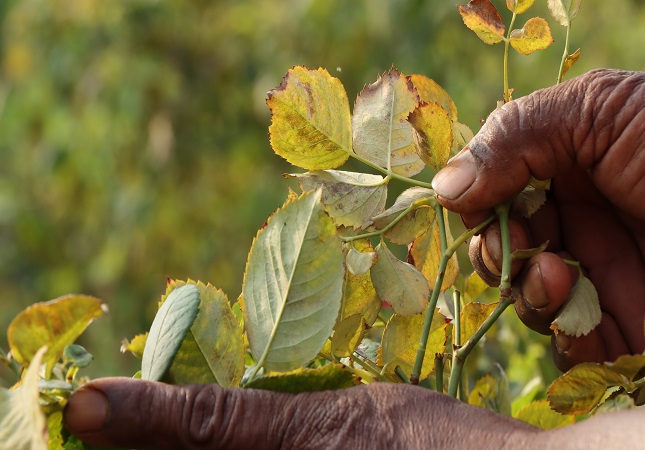Why do rose plants mostly suffer from aphids?
Rose plants are particularly susceptible to aphid infestations due to a combination of factors. Here are some reasons why rose plants often suffer from aphids:
-
Attractive food source: Aphids are attracted to the succulent and nutrient-rich sap present in rose plants. The sap provides them with the necessary nourishment for survival and reproduction. The soft and tender stems and buds of rose plants make them a prime feeding ground for aphids.
-
Lack of natural defenses: Unlike some other plants, rose plants do not possess strong natural defenses against aphids. They may have fewer trichomes (tiny hairs) on their leaves, which are known to deter aphids. This makes them more vulnerable to infestations.
-
High nitrogen content: Rose plants tend to have high nitrogen content in their tissues, which is attractive to aphids. Nitrogen-rich plants produce lush, tender growth that is more appealing to aphids. This makes rose plants a favored target for these pests.
-
Flowering habit: Roses are known for their beautiful flowers, but this characteristic also makes them susceptible to aphid infestations. Aphids are drawn to the flower buds and the succulent petals, which provide a suitable environment for them to feed and reproduce.
-
Warm and humid conditions: Aphids thrive in warm and humid environments, and these conditions are often favorable for rose plants as well. In such climates, aphids reproduce rapidly, leading to population explosions that can quickly overwhelm the plant.
-
Lack of natural predators: Rose gardens often lack a diverse range of natural predators that can help control aphid populations. Ladybugs, lacewings, and parasitic wasps are some beneficial insects that feed on aphids. If these natural predators are not present or are insufficient in number, aphid populations can multiply unchecked.
-
Monoculture practices: Commercial rose production often involves large-scale monoculture, where a single type of rose is grown in extensive areas. This lack of plant diversity can create an ideal environment for aphids to establish and spread rapidly.
It's important to note that while rose plants are prone to aphid infestations, there are various preventive measures and control methods available to mitigate the problem. Regular monitoring, pruning, maintaining proper plant hygiene, introducing beneficial insects, and using organic or chemical treatments when necessary can help manage aphids on rose plants effectively.

